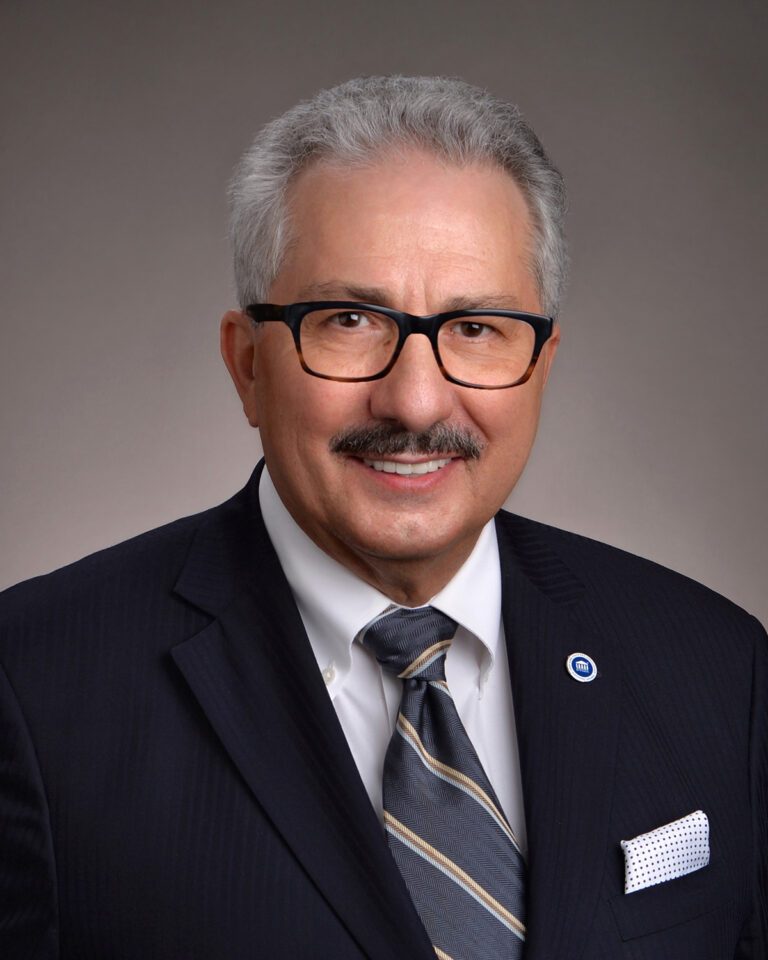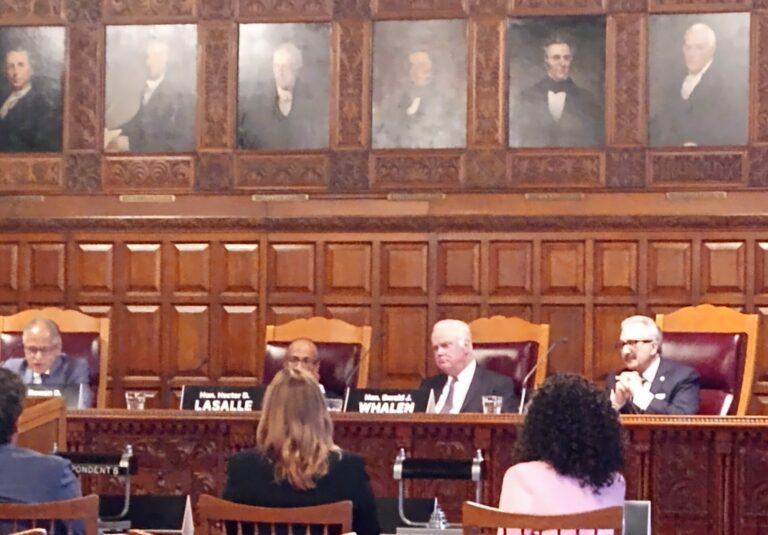NYSBA President Takes Part in Panel Investigating Civil Legal Service Needs in New York
9.18.2024

New York State Bar Association President Domenick Napoletano joined members of the Court of Appeals and Appellate Division at the annual Civil Legal Services hearing in Albany.
The daylong hearing highlights the realities faced by attorneys dedicated to providing civil legal services to low-income and vulnerable New Yorkers. Napoletano and the other panelists heard testimony on issues including low wages, heavy caseloads and the need for improved technology in town and village courts. Many legal services clients shared difficult stories of struggling with foreclosure, consumer debt and access to pubic benefits.
In opening the hearing, Chief Judge Rowan Wilson reiterated his commitment to increasing funding and access to civil legal services for New Yorkers in need. He emphasized that 14% of New Yorkers live below the poverty line, above the national average, and pointed out that the percentage is even higher in the state’s largest cities.
“Civil legal services help families keep their homes, prevent domestic abuse and can help them access public benefits,” he said. “The return on investment for civil legal aid is well established and is a moral, economic, social and political imperative.”

Napoletano expressed concern about the lack of broadband internet access in many upstate areas along with the shortage of lawyers working in rural counties.
“We are working with members of Congress and others to create a program to encourage new lawyers to work in rural areas in exchange for student loan forgiveness,” he said.
Heidi Dennis, executive director of the Rural Law Center of New York, testified that the biggest barriers to justice in the 44 rural counties the center serves are a lack of adequate public transportation and too few homeless shelters. She also said she is concerned about predatory lenders targeting rural residents. Dennis implored the court to increase training for town and village justices and invest in technology to provide virtual court appearance options in all town and village courts.
Judge Betty Calvo-Torres also highlighted the need for more funding for the state’s town and village courts. In addition to her work on the Court of Claims, she is the supervising judge of the Town and Village Courts for Genesee and Wyoming Counties. Calvo-Torres testified that these community courts often have limited hours and staff and don’t provide information on litigants’ rights, especially in eviction cases.
“The courts need to offer diversion programs to prevent evictions and town justices need training in how to handle virtual hearings,” she said. “Town boards are not giving the justice courts the funding they need.”
Calvo-Torres pointed to the success of hub courts in Erie and Monroe counties. The hub courts provide a central location in each county where residents have access to legal files and reliable internet service to use during virtual court proceedings.
Legal service attorney and former Fordham Law School Dean Matthew Diller testified about the sacrifices that public interest attorneys make in a job climate where they could make much more income in the private sector. He advocated for an increase in funding coupled with a statewide right to counsel for civil cases.
“We avoid catastrophic outcomes for our clients. The court must take a lead role in providing attorneys for the thousands of people who appear in court alone and the thousands more who do not even appear in court. The pay gap between legal services and public sector work for agencies is a giant chasm,” he said.
Each year, the chief judge is required to hold a hearing to evaluate the continuing unmet civil legal service needs and report his findings to the New York State Legislature and the Permanent Commission on Access to Justice.




